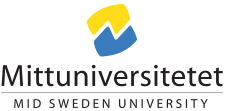Interview with Filip Barac
"Personal contacts is the great value with my research exchange. Despite the large differences between academia and industry, personal contacts and networks are key to success."
When did you go for an exchange as a guest researcher at the University of Pretoria? How long will you stay?
I have visited the Advanced Sensor Networks (ASN) group at the University of Pretoria on two occasions: in February-March and December 2015, each time for about 10 days.
What is it that you have been doing as a guest researcher?
During the first visit I held a presentation about my research for the ASN group and met many academics. At that time I was working on a paper whose submission deadline was approaching. Thanks to the unselfish help from the ASN people I managed to finalize the paper in time and the paper got accepted to a very good conference. During the second visit I was mainly working on my PhD-thesis, but the highlight of the trip was a visit to the Council for Scientific and Industrial Research (CSIR), the most important research and development organization in South Africa. CSIR is to South Africa what Totalförsvarets forskningsinstitut (FOI) is to Sweden, i.e. an institution of national importance. During the visit, our host, Dr Adnan M. Abu-Mahfouz, introduced us to a very interesting project that the CSIR runs with the city of Pretoria.
What is the biggest differences in research studies between two universities?
I would say that the etiquette at UoP is quite different from MIUN, where the environment at MIUN is much more informal. For instance, if a PhD-student at ASN wants to meet a professor, she/he needs to book an appointment through Mrs. Mari (who is to ASN what Annika is to IKS). Furthermore, at UP there are explicit rules about the number of publications necessary in order to be granted a doctoral degree and there is a merit system when it comes to funding of travel to conferences. Doctoral studies at UoP last for about 3 years, while in Sweden it can take up to 5 years to obtain a doctorate.
What have you learned during these two weeks?
I learned a lot about how things work both at ASN and South African industry. It also helped me in self-reflection, because the Swedish system was all that I knew so far.
What experience will you bring back to your research in to Sweden?
Apart from the obvious experience that all of us gain when meeting new people, I am bringing useful contacts for both our research group and myself. I hope that the joint ideas that we have right now will come into reality. I will also assist my fellow PhD-student from ASN, Bruno Silva, on a paper that he is working on. A common trait of Bruno and me is that we both highly value real-world experiments and my experience is relevant for the topic that Bruno is working on at the moment.
What value does this exchange have on your research studies?
Contacts. Despite the large differences between academia and industry, personal contacts and networks are key to success. On the other hand, our two groups have many common research interests and the two groups will continue to cooperate in the future, where measures are already being taken in order to secure more funding. In that sense, my intimate ambition is to be one of those who helped in establishing this cooperation, a pioneer and matchmaker, so to speak.



